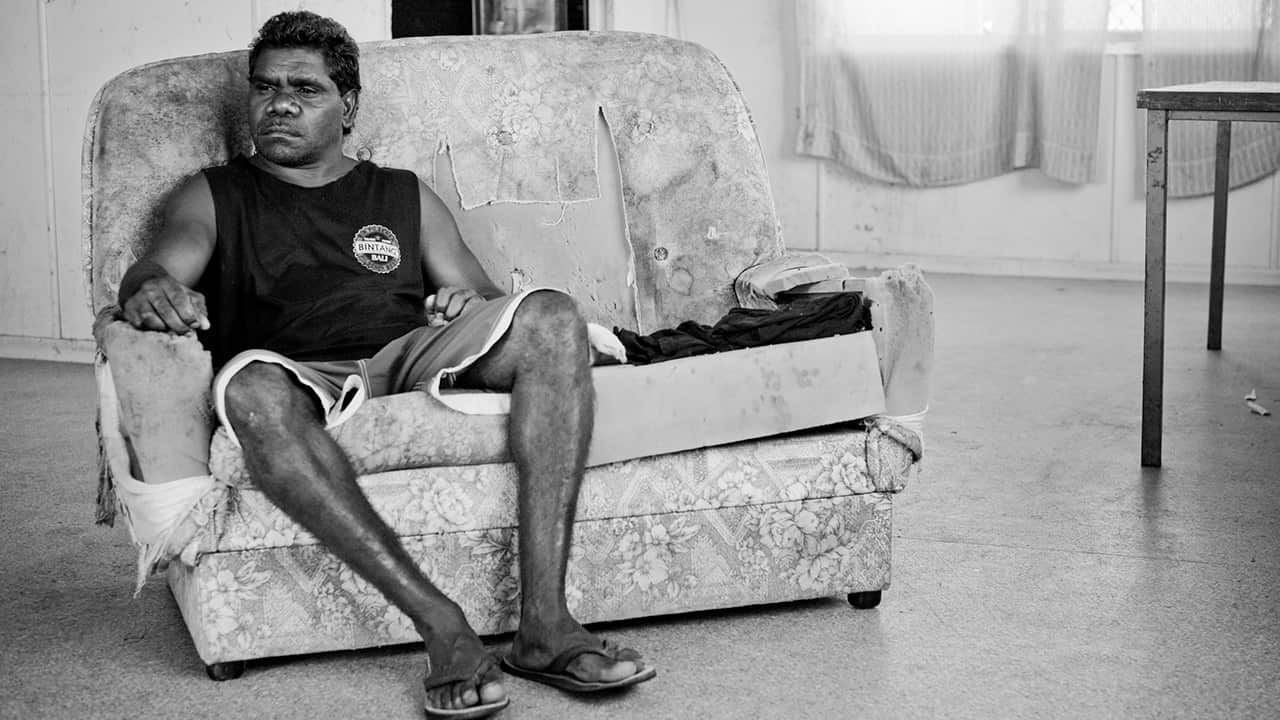Chris Hurley is 6 ft 7 in. (2m) tall and weighs 115 kg, an imposing figure who was known as 'The Tall Man" by the 3,100 or so Indigenous inhabitants of Palm Island north-east of Townsville.
Senior Seargeant Hurley arrested a drunken Cameron Doomadgee one day in 2004 after he allegedly swore at him. Some 45 minutes later Doomadgee was dead. He was 36, three years older than Hurley.
Writer-director Tony Krawitz’s superb documentary The Tall Man tells the disturbing story of that death-in-custody and its devastating impact on the Palm Island community while raising troubling questions about the administration of justice in Queensland.
If you’ve followed news reports of the death, the ensuing riots, Coronial inquests and Hurley being charged with manslaughter, you’ll probably be familiar with the bare bones of the case.
But, like me, you may be shocked and even outraged by the doco’s revelations as Krawitz skilfully uses video footage of Hurley re-enacting his version of that day’s events, court transcripts, interviews with Doomadgee’s family and fellow residents and material gleaned in Chloe Hooper’s book The Tall Man, to shed light on a controversial chapter in Queensland’s history.
The film outlines Palm Island’s troubled past as a penal colony, church-run mission and leper colony, where racism was rampant, culminating in a community blighted by alcoholism, domestic abuse and suicide. It looks like a slum on the edge of a tropical paradise.
The police video footage shows Hurley demonstrating how he and Doomadgee fell or slipped as they were entering the watch house cell. The officer insists the prisoner’s only injury was a minor cut and he was upset when Doomadgee was found dead in the cell.
Krawitz interviews a witness who says he saw Hurley’s elbow going up and down in a punching motion as he stood over Doomadgee, but the witness was drunk and the prosecutor decided not to call him at the trial.
Nowhere is it explained precisely how Doomadgee sustained the injuries described by the Coroner, which included four broken ribs caused by a 'compressive force" and a liver that was so badly ruptured it was nearly cleaved into two.
The Coroner found that Hurley had assaulted Doomadgee but the Director of Public Prosecutions decided there was no case for a prosecution, describing the death as a 'tragic accident". After a public outcry, then-Premier Peter Beattie asked the Attorney General to re-examine the DPP’s files and in June 2007 Hurley went on trial in Townsville for manslaughter, the first time in the State’s history that an officer had been charged over the death of an Indigenous prisoner.
Hurley was acquitted, prompting one of Doomadgee’s sisters to tell Krawitz, 'That rotten bastard just got away with fucking murder."
To the filmmaker’s credit, he takes an even-handed approach to the case, devoting a much screen time to Hurley’s supporters including Queensland Police Union president Ian Leavers, who describes the officer as 'very kind, compassionate and caring," and including a quote from Police Commissioner Bob Atkinson.
Residents in Burketown, where Hurley served before he was posted to Palm Island, speak fondly of him and say they doubt he was capable of such a crime. Hurley has always protested his innocence.
Among others interviewed are Doomadgee’s former partner Tracy Twaddle, his son Eric, Cameron’s eloquent pro-bono lawyer Andrew Boe and The Australian’s chief Queensland reporter Tony Koch.
The doco concludes with the findings of the final inquest conducted in March 2010, which includes an audio recording of Hurley’s statement.
The simple score by Antony Partos and David McCormack is a beautiful and haunting counterpoint to Germain McMicking’s vivid camerawork.
Watch 'The Tall Man'
Saturday 1 May, 8:30pm on NITV (streaming after broadcast at SBS On Demand)
M
Australia, 2011
Genre: Documentary
Language: English
Director: Tony Krawitz

